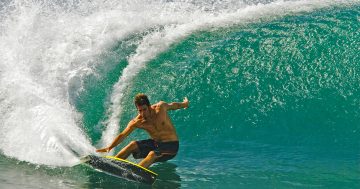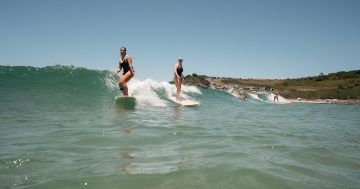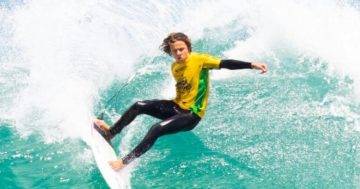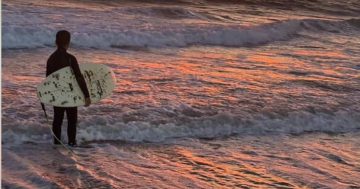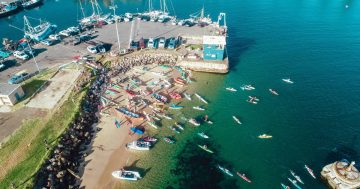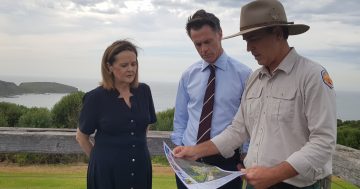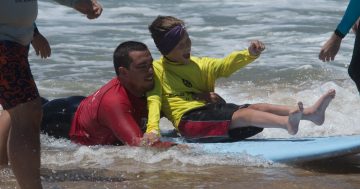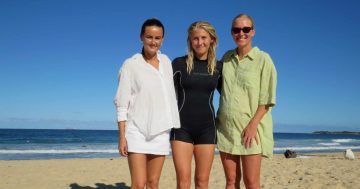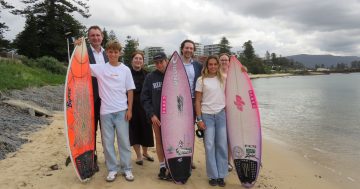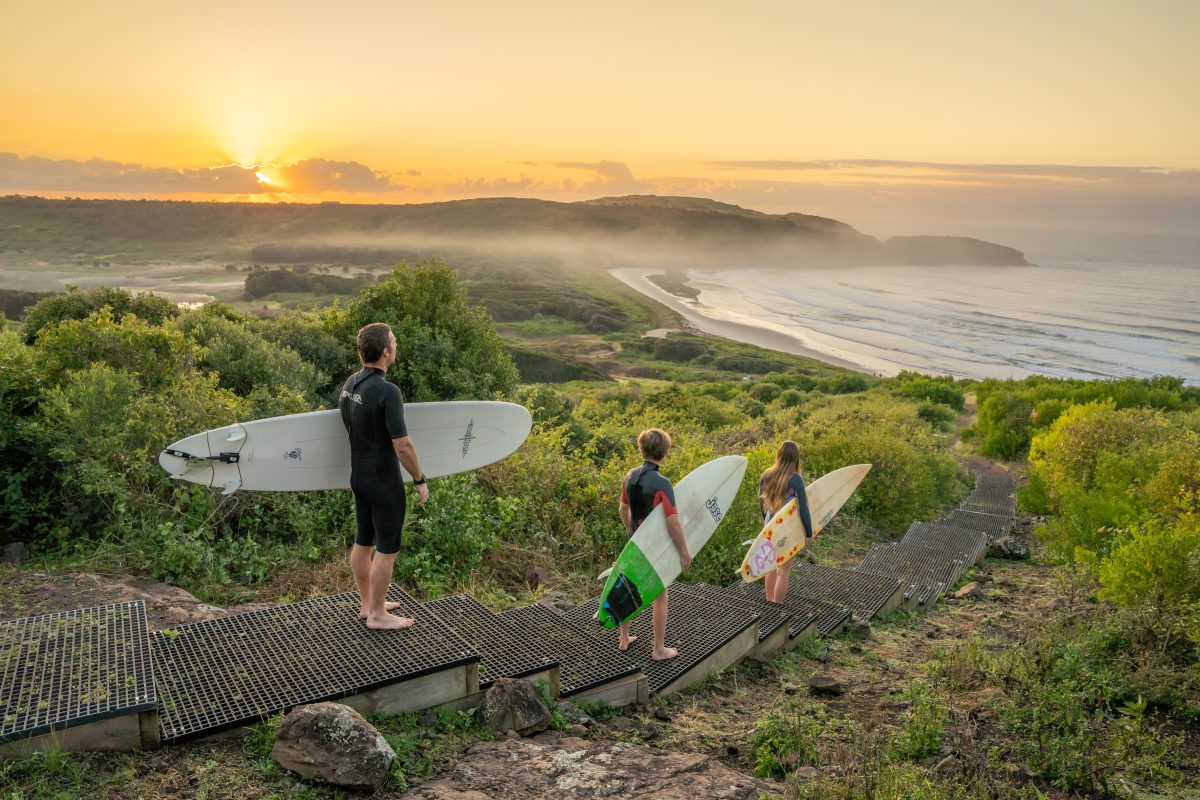
Longboard, shortboard, beginner, pro – paddling out into the line-up doesn’t exempt you from being a decent human being. Photo: NPWS.
A few weeks ago my husband and I were out for a surf at an iconic local break.
It was rubbish. The waves were tiny and inconsistent. Even with our very biggest longboards we weren’t getting much.
But the water was still warm, the sun was shining and it was a perfect autumn afternoon to enjoy stuffing about.
I truly believe one of the greatest joys the ocean offers us is a place to stuff about; those who find they are extraordinarily good at it become professional surfers.
There weren’t many people out – the two of us, a couple of older blokes who were there for the chats more than anything, a dad pushing his toddler into whitewash.
There was also a kid, maybe 10 years old. You could tell he was a bit nervous, being out by himself. He was lying just a little too far back on the board, and paddling for waves that weren’t quite ready to break.
We called him onto the odd wave and cheered when he got close to catching one; surfing is a daunting sport to learn in part because you have to practise in public.
Unless you’re one of the lucky kids whose surfer parent pushed them onto waves before they could walk, everyone serves their time as a kook.
Most of us will make returns to kook-ville after injuries or life get in the way. Some of us never really leave it; and unless you’ve been on the pro circuit, all of us are kookier than we’d like to believe.
A middle-aged bloke on a shortboard paddled out to join our relaxed, kooky crew.
He threw himself into everything that came through with unparalleled ferocity, hacking at one-foot slop like it was Bells and the buzzer was about to go.
Our young friend paddled for a wave, not spotting the mid-life crisis who had priority.
As luck would have it, it was the one wave he caught all day.
Despite his faux pas, we cheered him on. He clearly hadn’t seen the other surfer, and it’s hard to truly claim priority on a tiny, messy, blown-out beach break.
There was no real potential for harm, and his foamie wasn’t going to do any serious damage to anything or anyone.
Our shortboarding friend did not feel the same way, however.
He screamed himself blue in the face at this poor kid who had the audacity to accidentally steal the world’s most mediocre wave.
You could see the kid’s face drop, the fear in his eyes.
He paddled in a couple of minutes later, without the stoke that usually comes from scoring a wave as a beginner, clearly feeling he didn’t belong.
Our mate on the shortboard worked out his personal issues on a few more waves before taking off, to everyone’s relief.
I’ve surfed long enough to know interactions like this aren’t uncommon. I grew up in a time and a place where that confrontation could have become physical.
And it’s bloody embarrassing.
If you need to yell at a child because they make a mistake at the sport you aren’t good enough at to make a living out of, take a look in the mirror.
The ocean is for everyone. We all had to learn at some point. And there’s always going to be a bigger dog out there, somewhere.
Last week I had the privilege of interviewing one of surfing’s all-time greats, filmmaker Jack McCoy.
If you’ve watched Blue Horizon, The Occumentary, The Green Iguana, or A Deeper Shade of Blue, you’ve enjoyed Jack’s work.
He grew up in Hawaii; he knew surf pioneer Duke Kahanamoku. He spent decades honing his craft as a waterman and received a lifetime achievement award from the industry earlier this year.
The belief he’s built his life around is that surfing is about connection – with the ocean and with each other.
“The greatest gift you can have is to share a wave, give a wave,” he said.
“Sit there and share the waves; talk to people; help someone who can’t catch a wave or push them onto a wave – a kid, a girl, a beginner, a kook.
“Surfing is about having fun for everybody, not just you.”









